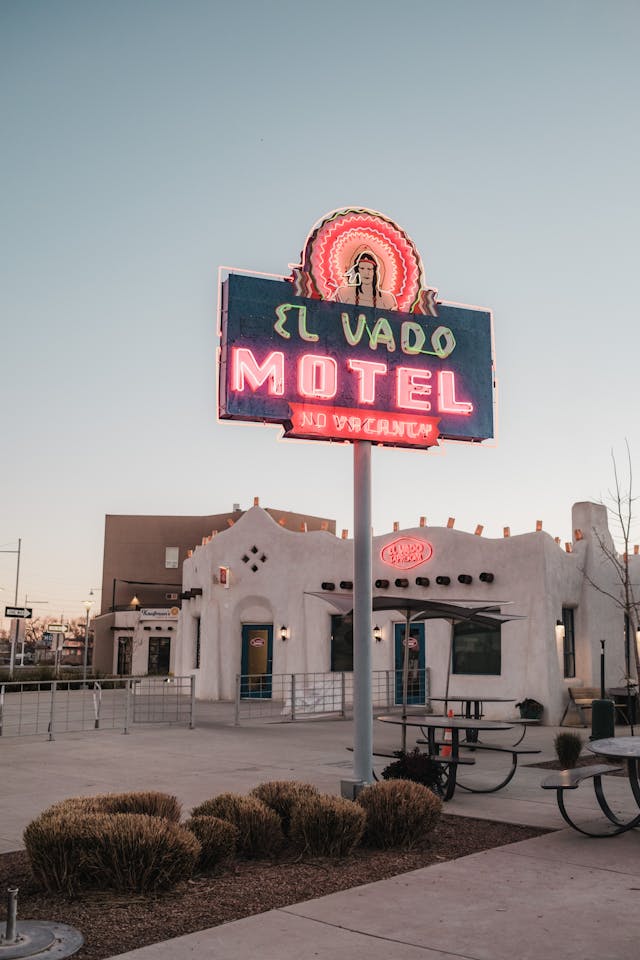Motel accommodations have long been a staple in the American lodging landscape, offering travelers an affordable and convenient place to stay. From their inception in the early 20th century to their modern-day incarnations, motels have continuously adapted to meet the changing needs and preferences of travelers.
Historical Context and Evolution
The advent of motels is closely tied to the rise of automobile travel in the United States. In the 1920s and 1930s, as cars became more accessible to the average American, the demand for roadside lodging surged. Traditional hotels, often located in urban centers, were not always practical for motorists seeking overnight accommodations along highways. This gap in the market led to the emergence of motels—an innovation designed to cater specifically to the needs of road-weary travelers.
The first motel, the Milestone Mo-Tel, opened in 1925 in San Luis Obispo, California, and set a precedent with its simple yet effective layout: individual cabins with adjacent parking. This design allowed travelers to park directly next to their rooms, providing unmatched convenience. Over time, the typical motel design evolved to feature single-story or two-story buildings with rooms that open directly to the parking lot or a central courtyard.

Key Features and Amenities
One of the defining characteristics of motels is their emphasis on accessibility and ease of use. Unlike traditional hotels, motels generally do not have interior corridors, lobbies, or elevators. Instead, guests can drive up to their room, making the check-in process quick and hassle-free. This design is particularly appealing to families, road trippers, and anyone needing a brief stopover during a long journey.
Despite their relatively simple setup, motels offer a range of amenities to enhance the guest experience. Standard features typically include comfortable beds, private bathrooms, televisions, and climate control. Many motels also provide additional conveniences such as free Wi-Fi, complimentary breakfast, and in-room coffee makers. Some even have swimming pools, picnic areas, and on-site laundry facilities, catering to extended-stay guests and those seeking a bit more comfort.
Cultural and Social Impact
Motels hold a special place in American culture, symbolizing freedom, adventure, and the open road. They evoke memories of family vacations, cross-country road trips, and spontaneous getaways. The classic neon signs, retro designs, and quirky roadside attractions often associated with motels contribute to their nostalgic appeal.
Beyond their practical function, motels have become iconic settings in popular culture. They feature prominently in movies, television shows, and literature, often representing a transient or liminal space where characters find themselves at a crossroads. The allure of the motel as a setting lies in its simplicity and the sense of possibility it evokes—a place where stories unfold and adventures begin.

Contemporary Trends and the Future
While the golden age of motels may have waned with the expansion of interstate highways and the proliferation of chain hotels, motels continue to adapt and thrive. Today, many motels are undergoing renovations and rebranding efforts to appeal to a new generation of travelers. Boutique motels, which combine vintage charm with modern amenities, are becoming increasingly popular. These establishments often emphasize unique design elements, personalized service, and a strong connection to local culture.
Additionally, the rise of digital booking platforms and travel apps has made it easier for travelers to find and book motels, ensuring their continued relevance in the hospitality industry. Motels’ affordability and convenience remain their strongest selling points, making them an attractive option for budget-conscious travelers and those seeking a straightforward, no-frills lodging experience. Accommodation in north Brisbane offers a distinctive blend of convenience, affordability, and charm that has endeared them to generations of travelers.
From their origins as roadside havens for motorists to their modern-day iterations as boutique destinations, motels continue to play a vital role in the American travel experience. As the hospitality industry evolves, motels remain a beloved and enduring symbol of the freedom and adventure of the open road.











